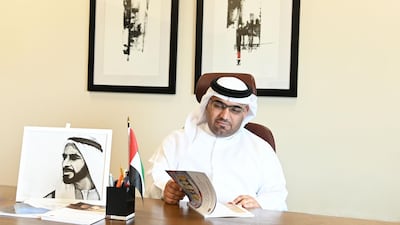A senior Emirati official said major legal reforms set out last month struck the right balance between personal freedoms and the country's culture and history.
Saeed Al Hebsi, director of human rights at the UAE Ministry of Foreign Affairs and International Co-operation, said the overhaul to personal and family law are progressive steps that blend the UAE’s culture and heritage with a global outlook.
In comments provided to The National, Mr Al Hebsi said the reforms to divorce and inheritance, harassment and assault, judicial procedures, alcohol consumption and cohabitation signalled a continuation rather than a change of direction.
"We see no contradiction in taking pride in our accommodation of pluralism while being proud of our Islamic values and Emirati culture," Mr Al Hebsi said.
“To be a global player – one that embraces opportunities for economic prosperity for our citizens and contributes to global progress and mutual understanding – we have to break barriers by reassessing and redefining our cultural, economic and political positions.”
The landmark reforms affect laws relating to divorce and separation, how wills and assets are divided, alcohol, suicide and the protection of women from harassment.
The laws of a person's country of origin can now be used for divorces and inheritance. Suicide and attempted suicide will be decriminalised as will drinking alcohol without a licence. And although extremely rare in the Emirates, there will be no potential leniency for suspects accused of so-called honour crimes.
The reforms are being championed as a game changer, making life for the 200 nationalities who call the UAE home much easier and attracting even more. Mr Al Hebsi said the openness of the country’s society is a key factor in more and more people choosing to set down roots here.
"We can expect the UAE’s status as a first-rate expatriate destination to be further cemented by our promotion of long-term cross-cultural appreciation, exchange, and understanding," he said.
On the subject of Covid-19, Mr Al Hebsi said the world was living through the greatest challenge of our lifetime.
The legal reforms, combined with the recent relaxation to restrictions on foreign ownership of companies, retirement visas and remote work options, were critical to advancing the UAE’s agenda in a post-coronavirus world.
“These moves are a continuation of our resilience, leadership and boldness of spirit that will help us to stay ahead of the curve by attracting the kind of foreign investment that will help boost post-Covid-19 recovery in an inclusive and diverse environment," he said.
“We believe these new changes act to enhance the economic environment further,” Mr Al Hebsi said.
“In the eyes of everyone – from regional entrepreneurs to international businessmen and women – updates to our social and civil norms create a familiar, internationally flavoured operating environment in which the international business community can trust and feel confident about having a social infrastructure in which to thrive.”
Looking ahead, the UAE is preparing for a historic 2021. Next year brings the country's 50th anniversary, Expo 2020 and the completion of the Abrahamic Family House on Saadiyat Island in Abu Dhabi. But there are more reforms on the agenda.
The recently established National Human Rights Committee is launching a process to strengthen protections for human rights in the UAE. The committee will lead the preparation of the National Human Rights Action Plan for the UAE.
Mr Al Hebsi said the legal reforms introduced in November are another example of the UAE's commitment to innovation and inclusivity.
“In the UAE, we have always believed that the bold evolution of societal norms paired with legal change encourages economies to flourish," he said.
“We firmly believe that our approach to tolerance, reflected in these laws, is the best way to future-proof the country for enduring tolerance, prosperity, peace and happiness.”







